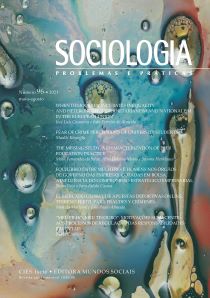When democracy incubates inequality and heteronomy: authoritarianism and nationalism in the European Union
DOI:
https://doi.org/10.7458/SPP20219621001Keywords:
authoritarianism, nationalism, social class, social orientations, human valuesAbstract
In this study we analyse the social base of authoritarian and nationalist (AN) parties in the European Union grounded on a theory that articulates social and cultural dimensions. We aim to characterize and understand this electorate, and explain its increase, considering their social class, education, income, social orientations, human values, and attitudes towards immigrants, and looking upon the trajectory of inequalities. Data is from the European Social Survey and contextual national level information on economic and educational inequalities, and on social mobility. We find that AN parties voters are mostly industrial and agricultural workers, with very low educational resources and low income. They are characterized by the social orientation of heteronomy, a paradigmatic conformist disposition combining conformity with inequality and conformity with hetero-determination of one’s social position, here defined by a low score of the human values of equality and creativity. Heteronomy helps to understand a wide range of AN cultural traits of this population such as their exclusionary attitude towards immigrants. And we verify that the expansion of this electorate follows increasing inequality, mainly in education, as well as downward mobility, and social exclusion.
Downloads
Published
Issue
Section
License
Authors who publish in this Journal must agree the following terms and conditions:
- Authors retain copyright and grant the Journal the right to first publication, while simultaneously agreeing to a Creative Commons Attribution License, which allows others to share their work on condition that they cite the original author(s) and recognise that the latter’s work was first published in this Journal.
- Authors are authorised to enter into additional contracts separately, for non-exclusive distribution of the version of the work that is published in this Journal (e.g. publication in an institutional repository or as a book chapter), subject to recognition of initial publication in this Journal.


